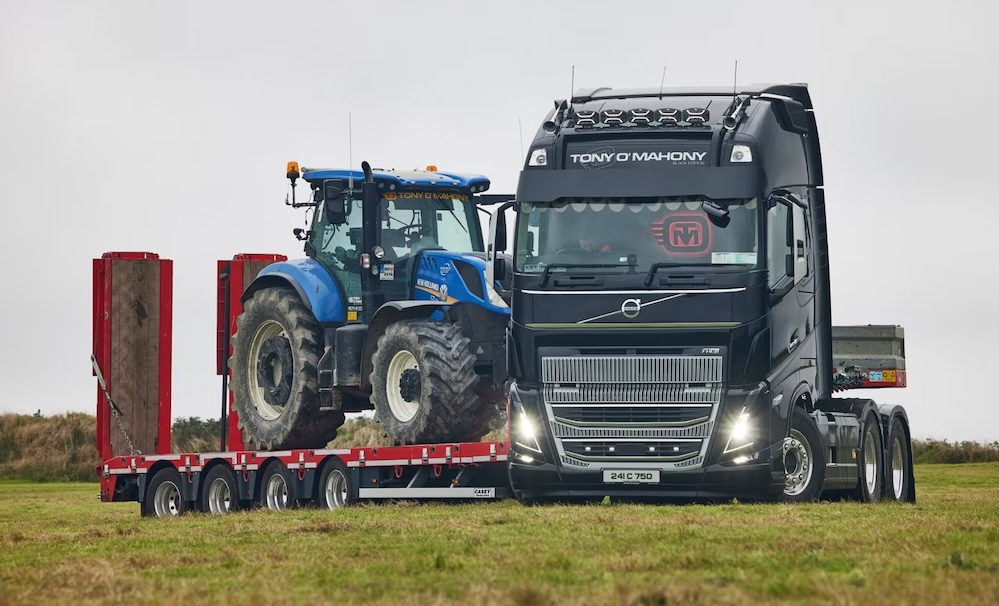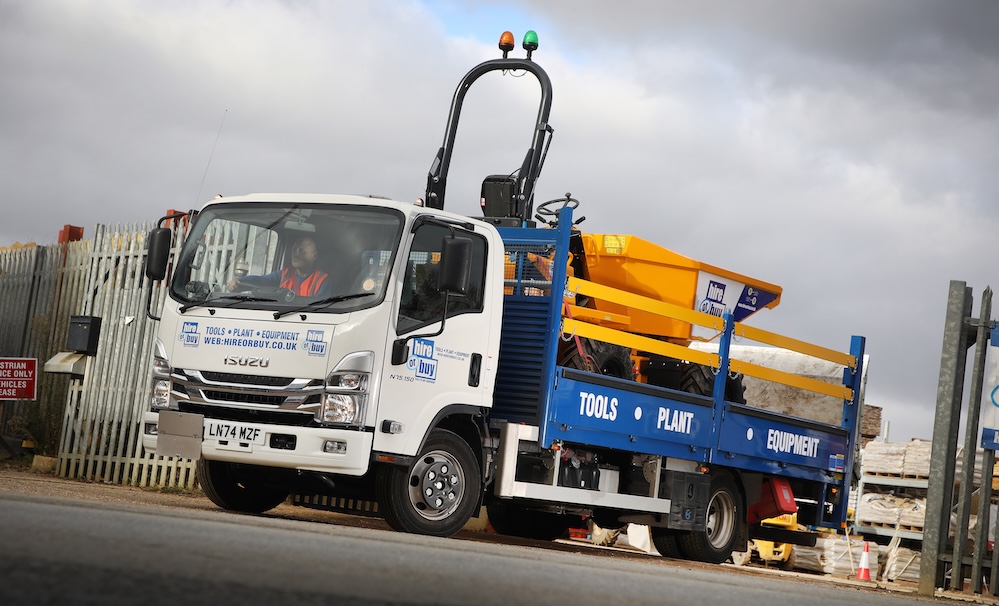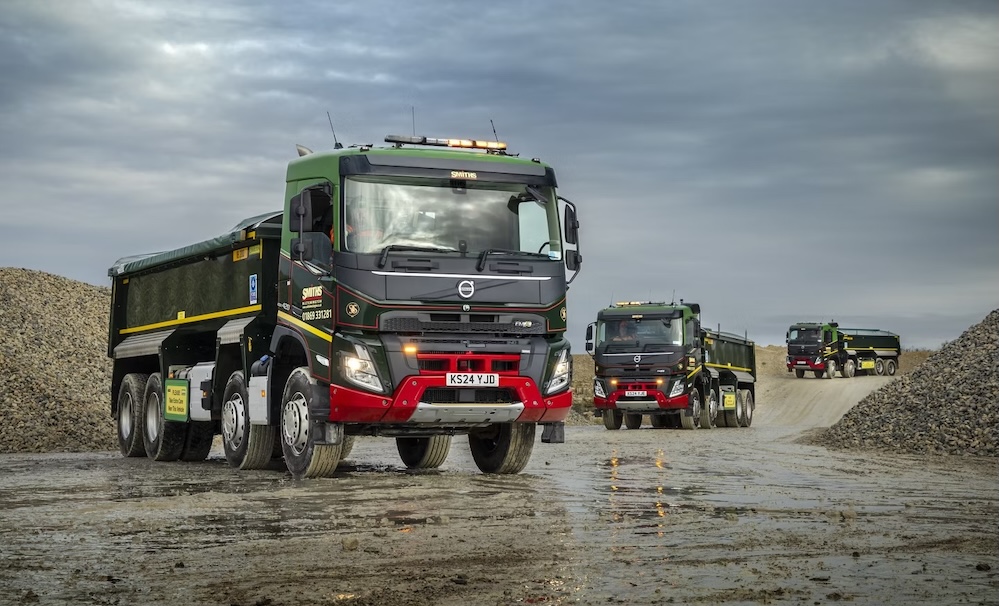Dolphin Transport has added three new DAF CF 310 FA 18-tonne rigids to its fleet in Nottingham, making it an all-DAF operation. The trucks were all delivered ready-bodied, through the DAF factory-build programme, with 8-metre curtain-side bodies and Tuckaway tail-lifts.
Jeff McGhee, who founded the business 14 years ago, said, “I bought a used DAF CF demonstrator a year ago, so when I wanted to dispose of three other 18-tonne trucks this year, as part of our rolling four-year replacement programme, it wasn’t too hard a choice. Especially,” he said, “when a local dealer talked me through the factory-build programme. It saved us a good 8-10 weeks compared to having to take delivery of chassis cabs and then getting them bodied locally – and, because it is a sort of ‘one-stop-shop’ procedure, the overall DAF package also saved us some decent money.”
He said, “I was very pleased with both the price and service from Chatfields Truck & Van, who sold us the trucks, and the quality of the vehicles when they arrived.
“The ex-demonstrator had already given us a good feel for the fuel consumption we can expect, which is excellent,” he said, “and that will be a real bonus: even in these days of lower prices!”
Dolphin Transport operates 7.5t and 18t rigids across the UK, specialising in bespoke work for customers with high quality or high value goods, including shop-fittings, designer wear, electronics and glassware. Every vehicle operated by the company is now a DAF, and McGhee has the majority fitted with sleeper cabs. The latest 18t additions also benefit from Lane Departure Warning System and Advanced Emergency Braking technology, as well as ‘fridges. “Drivers are very important to us,” he tells us, “so, even though we certainly don’t need sleeper cabs for every trip, they do just give the guys more comfort. “We’ve had other makes over the years, but they prefer the DAF cabs, especially these latest ones. They also like the fact that the DAFs are very reliable, which lets them concentrate on doing their jobs, safely, efficiently and economically. That’s key to our business. We never set out to be the cheapest. In the sort of work we do it’s all about reliability and prompt timing – and without happy drivers you’re never going to deliver that.” As part of the drive to ensure a quality service, Dolphin Transport, already an RHA member, has joined the FORS scheme, which McGhee sees as, ‘raising standards even higher and giving drivers a better training opportunity’.
For the future, McGhee expects no immediate changes to the way Dolphin Transport operates. He sees 7.5t vehicles as coming under some threat perhaps, arguing that the advent of Euro-6 the average 7.5 tonner truck now makes them some 300kgs heavier. He feared payload was becoming an issue: a few years ago Dolphin was getting around 2.7-tonnes, with the latest sleeper cab trucks and Euro-6 increases that has dropped far closer to 2-tonnes. Asked if he would consider moving up to 10- or 12-tonne trucks to ease the problem, he expressed real doubts that it would be possible to get the rates required to make economic sense of the move right now. “Never say ‘never’ though,” he concluded, “because the industry is changing every day. Fuel prices are unlikely to stay this low for ever, and there’s not an operator in the business who can afford to shut their eyes to any possible changes in the future.”








